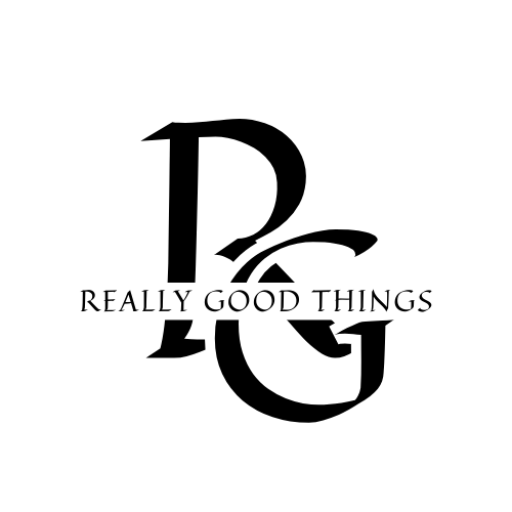Setbacks are an inevitable part of any career, but it’s how we overcome them that truly defines our resilience and capacity for growth. From the perspective of CEOs and founders, we delve into eight candid stories of adversity, starting with transitioning to bigger team management and culminating in learning from an intellectual property case setback. These professionals share their personal and professional challenges and the strategies they employed to emerge stronger.
- Transitioning to Bigger Team Management
- Resilience After Losing a Major Client
- Pivoting During a Pandemic
- User Feedback Drives App Improvement
- Recovery From Google Algorithm Impact
- Navigating Supply-Chain Disruptions
- User-Centered Pivot for Healthcare Platform
- Learning from Intellectual Property Case Setback
Transitioning to Bigger Team Management
One personal setback I faced early in my career was when I transitioned from a smaller firm to my current role. The shift was exhilarating, but it also came with its own set of challenges. I was suddenly responsible for managing larger projects and leading a bigger team, which felt quite overwhelming at first.
The initial months were tough. I found myself struggling to keep up with the increased workload and the expectations that came with the role. It was a humbling experience, realizing that my previous strategies weren’t scaling well in this new environment. I had to quickly learn how to delegate effectively and trust my team to take ownership of their responsibilities. This involved a lot of communication, regular check-ins, and creating an environment where everyone felt empowered to share their ideas and concerns.
To overcome this setback, I invested in leadership training and sought mentorship from seasoned colleagues who had navigated similar transitions. Their insights were invaluable and helped me develop the confidence to lead effectively. Over time, I grew more comfortable in my role, and together with my team, we were able to achieve our project goals. This experience reinforced the idea that growth often comes from stepping out of your comfort zone and being open to learning from those around you.
Samantha Odo, Real Estate Sales Representative & Montreal Division Manager, Precondo
Resilience After Losing a Major Client
One of the most significant professional setbacks I faced as the founder of a legal process outsourcing company was losing a major client early on in our journey.
This client represented a substantial portion of our business, and their departure could have spelled disaster for our fledgling company.
I remember the moment vividly—feeling the weight of uncertainty and the fear of what might come next. However, instead of letting this setback define us, I saw it as an opportunity to reassess and strengthen our operations.
We gathered the team, analyzed the reasons behind the loss, and identified areas to improve. By diversifying our client base and enhancing the quality of our services, we not only bounced back but also grew stronger.
The experience taught me resilience and the importance of adaptability in business. It was a turning point that solidified our commitment to excellence and set us on a sustained growth path.
Aseem Jha, Founder, Legal Consulting Pro
Pivoting During a Pandemic
A significant setback I faced was losing a major client due to budget cuts during the pandemic. I overcame this by quickly pivoting to offer specialized COVID-19 digital marketing packages to small businesses needing to transition online. This not only replaced the lost revenue but also opened up a new market segment. I learned the importance of adaptability and diversification in business.
This experience led me to develop a more resilient business model, focusing on a mix of long-term and short-term projects across various industries. I also started offering virtual workshops on digital marketing basics, which became an additional revenue stream and lead generation tool for my consultancy services.
Kartik Ahuja, Digital Marketer, kartikahuja.com
User Feedback Drives App Improvement
During the early stages of launching my AI-based Bible application, I was deeply invested in the project, both emotionally and financially, and I believed that the technology we were developing would revolutionize how people engage with scripture. However, when we initially launched, the response was lukewarm. Despite all the effort we had put into the app, user engagement was far lower than expected, and I started to question whether we had missed the mark entirely.
This setback was particularly tough because I had poured so much into the project, and the early signs suggested that we might not achieve the impact I had envisioned. The disappointment was compounded by the fact that I had to confront my own assumptions about what users wanted and how they would interact with the app. I realized that while we had focused on technological innovation, we hadn’t fully aligned the app’s features with the real needs and desires of our target audience.
To overcome this, I knew we needed to pivot quickly and effectively. I started by gathering as much feedback as possible from our initial users. We conducted surveys and engaged directly with our audience to understand their pain points, preferences, and what they felt was missing. This user-driven approach was crucial in reshaping our strategy.
Based on this feedback, we made significant changes to the app. We simplified the user interface, introduced new features that made the app more intuitive, and focused on enhancing the aspects of the app that users found most valuable. We also invested in a more targeted marketing approach, emphasizing the unique value propositions that resonated most with our audience.
The process wasn’t easy, and it required letting go of some ideas and features I was initially attached to. However, this experience taught me the importance of flexibility and the need to be responsive to user feedback. It also reinforced the value of staying connected to the market and not getting too attached to a particular vision at the expense of user experience.
In the end, the setback became a turning point for us. The changes we implemented led to a significant increase in user engagement and satisfaction, and the app began to grow in ways I hadn’t initially imagined. This experience has shaped my approach to business, reminding me that setbacks are often opportunities in disguise, provided you’re willing to listen, adapt, and learn from them.
Spencer Christian, Founder, Bible Chat App
Recovery From Google Algorithm Impact
A few years ago, I had a significant professional setback when one of my websites experienced an enormous drop in page views after a major Google algorithm update.
It was really discouraging—months of hard work seemingly went down the drain overnight, and the drop in traffic was affecting both visibility and revenue.
The first step in dealing with this problem was to remain cool-headed and analytical. So, I dove into the data, comparing pre-update and post-update performances for changes.
The pages that suffered the most were those with limited content quality and a poor internal link-building structure. Instead of panicking, I saw this as an opportunity to grow.
I decided to start off by carrying out a full content audit. I either updated or combined old or low-value content with more substantial posts. Additionally, I restructured the whole site, making sure to interlink better internally, making navigation easier for visitors to follow.
Afterward, I focused on improving user experience by increasing site speed, optimizing for mobiles, and enhancing overall designs, as well as incorporating diverse forms of content, such as videos and infographics, that would attract more users.
It took time, but gradually the moves started bringing results. Page views began picking up again and eventually soared above previous traffic levels on my website.
The value of flexibility and continuous improvement became clear during this period. Such setbacks might be challenging, but most likely they lead to greater strategies with stronger outcomes.
For those facing similar challenges, my advice is simple: stay calm; be patient; strive for excellence; keep experimenting; and learn from data all the time.
Soubhik Chakrabarti, CEO, Icy Tales
Navigating Supply-Chain Disruptions
A significant setback I experienced was when we faced a major supply-chain issue that almost derailed one of our biggest product launches. We had everything lined up perfectly, but then a key supplier encountered unexpected delays, and we were left scrambling to find a solution. It was incredibly stressful, as we were on a tight deadline, and the clock was ticking.
To overcome this, we quickly shifted our focus to building relationships with alternative suppliers and reevaluated our inventory-management practices to be more flexible. We also communicated transparently with our customers about the delay and offered them incentives to stay engaged with our brand.
The experience was a tough lesson in crisis management, but it ultimately strengthened our resilience and taught us the importance of having contingency plans in place. It was a rough patch, but it made us more agile and better prepared for future challenges.
Chris Bajda, E-commerce Entrepreneur & Managing Partner, Groomsday
User-Centered Pivot for Healthcare Platform
One significant professional setback I experienced was during the early stages of building my company. We encountered unexpected challenges in aligning our technology with the complex needs of healthcare providers. Despite our best efforts, the initial platform didn’t fully meet user expectations, leading to slower adoption rates than we had anticipated.
To overcome this, I focused on embracing the setback as a learning opportunity. We went back to the drawing board and actively sought feedback from our users, diving deep into their pain points and needs. This led to a pivot in our approach—rather than trying to offer a broad solution, we honed in on specific, high-impact features that truly resonated with our users.
By iterating quickly and maintaining open lines of communication with our customers, we were able to rebuild trust and deliver a product that better served the healthcare community. This experience reinforced the importance of staying agile, being responsive to feedback, and always keeping the end user at the center of our development process. Ultimately, it was this adaptability and commitment to continuous improvement that allowed us to turn a setback into a stepping stone for our success.
Jamie Frew, CEO, Carepatron
Learning from Intellectual Property Case Setback
One notable setback I faced was early in my career when I was working on a high-profile case involving a complex trademark dispute. I was relatively new to the intricacies of intellectual property law, and despite my best efforts, I struggled to get a handle on the vast amount of information and the nuances of the case. The client was anxious, and the pressure was immense. I realized that my usual approach of handling things solo wasn’t going to cut it this time.
To overcome this, I reached out to more experienced colleagues and mentors in the field, asking for their guidance and feedback. I also dedicated extra hours to study and familiarize myself with every detail of trademark law. By combining their insights with my own research, I managed to turn things around and ultimately secure a favorable outcome for the client.
It was a humbling experience, but it taught me the importance of seeking help when needed and continuously expanding my knowledge base. This setback not only strengthened my skills but also reinforced the value of collaboration and persistence in the legal profession.
C.L. Mike Schmidt, Lawyer, Schmidt & Clark



